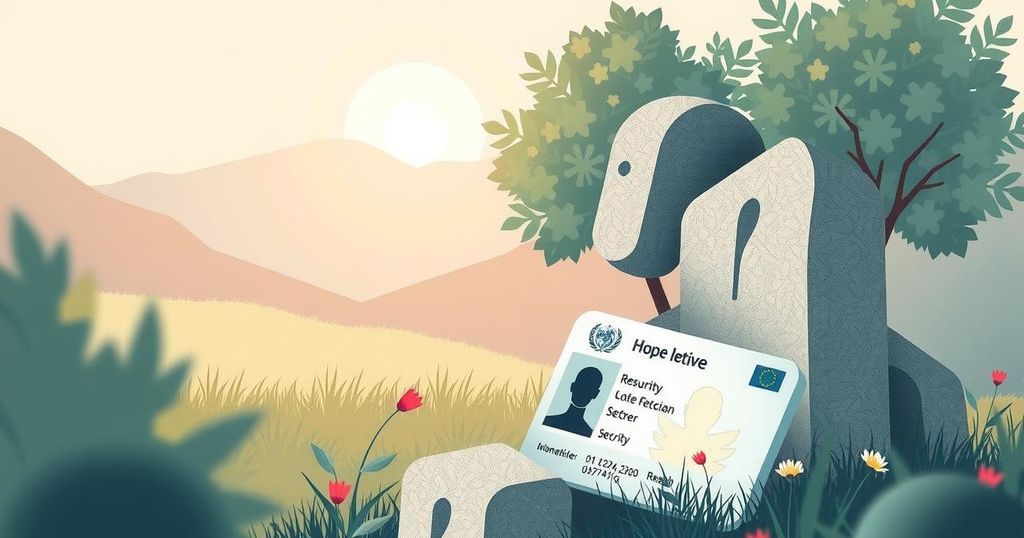Biometric identity cards for refugees in Cameroon are being distributed, symbolizing hope and inclusion. This initiative, which results from collaboration between the Government of Cameroon and UNHCR, supports refugees in accessing services and participating in the economy. Recipients express relief and excitement, as the cards represent significant improvements in their daily lives.
Ali Bappaladane, a refugee leader residing in Mbaimboum, Cameroon, eagerly awaits the distribution of biometric identity cards in Touboro. Among the 10,000 anticipated cards, over 4,000 are ready for collection. These cards, a result of cooperative efforts between the Government of Cameroon and UNHCR, represent the country’s commitment to protecting refugees and facilitating their movement.
Hadidja, a Chadian refugee in the capital, arrived early to receive her card at the UNHCR’s technical secretariat in Yaoundé. She hopes the card will improve her access to banking services and educational opportunities as she pursues a medical degree. The biometric ID cards are crucial for facilitating urban refugees’ participation in the economy.
The introduction of biometric ID cards in Cameroon has significantly improved refugees’ lives. These cards provide numerous benefits, serving as a means to access banking services and ensuring freedom of movement. Shelley Teckombi Yazembrou, a Central African Republic refugee, expressed relief, stating that the card allows her to move without fear of arrest.
Bettina Gambert, Head of Protection at UNHCR Cameroon, highlighted the importance of this initiative, emphasizing that it marks progress toward achieving Sustainable Development Goals. The biometric cards will enhance the rights of refugees and enable their societal integration, granting them access to essential services and economic opportunities.
For Ali and Hadidja, receiving their cards transcends the physical object; it embodies hope and the potential for a better future. Their experiences testify to the efficacy of collaborative efforts between the government and international organizations in meeting refugee needs.
The introduction of biometric ID cards for refugees in Cameroon marks a significant step toward enhancing the protection and rights of displaced individuals. This initiative, driven by collaboration between the Government of Cameroon and UNHCR, aims to facilitate movement and access to essential services for refugees. As many refugees struggle with basic freedoms and identification, these cards symbolize a commitment to their inclusion in society and opportunities for improved living conditions.
The biometric identity card initiative in Cameroon is a transformative step for refugees, enabling access to essential services and societal integration. It reflects a commitment from both the Government of Cameroon and UNHCR to uphold the rights of refugees while facilitating their participation in local economies. As recipients like Ali and Hadidja illustrate, these cards offer not just identification, but also hope for a brighter future.
Original Source: www.unhcr.org






